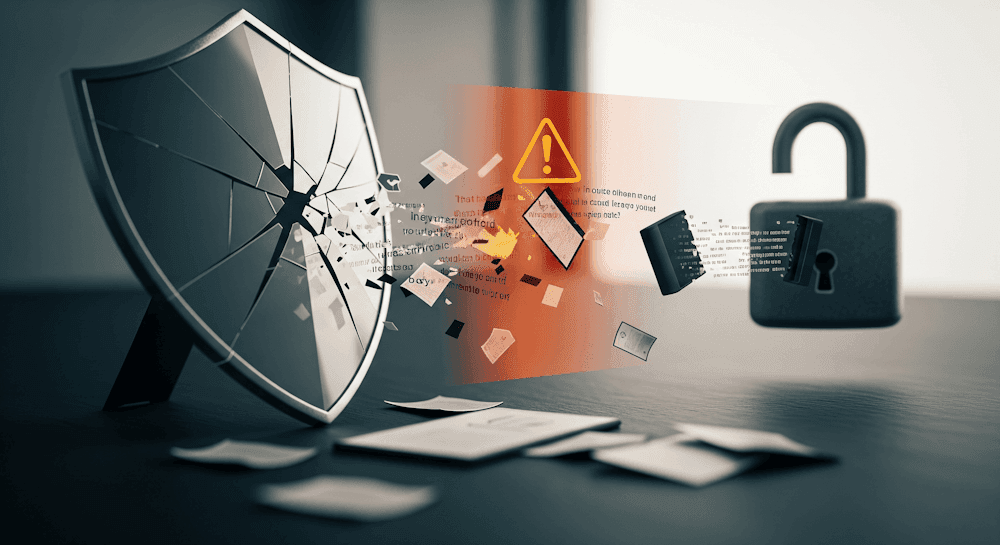Okay, let’s get one thing straight—not all confidentiality breaches are malicious.
Sometimes, people mess up. You forward an email with sensitive info. You leave a document open. You have a casual chat that goes a little too far. And boom—confidentiality is out the window.
It’s not always corporate espionage. Sometimes it’s just carelessness. But either way, the damage is done.
Let’s talk about how these “oops” moments happen, what they look like in real life, and how you can protect yourself (and your company) from the fallout.
First, What Is an Unintentional Breach?
It’s exactly what it sounds like: a leak of private information that wasn’t done on purpose.
You didn’t mean to break the rules. You didn’t sell secrets or do anything shady. But something slipped. Or you forgot to double-check. Or you thought, “It’s no big deal.”
But in reality? It is a big deal.
Real-World Examples of Unintentional Breaches
Let’s make this relatable. Here’s what an unintentional breach might look like on an average Tuesday:
You ask for a customer’s phone number—out loud—in a crowded store.
You’re trying to be helpful at checkout, but now 10 people overheard that number. That’s a breach.
You talk about a client project in a coffee shop.
You didn’t name names, but you mentioned details. Someone overhears—and now private info is public.
You share a spreadsheet internally—but forget to remove personal identifiers.
Now people are seeing names, emails, salaries, or health data that they shouldn’t.
You leave your computer unlocked in a shared space.
Someone else sees confidential info just sitting there.
You lose your phone or USB drive—with work data on it.
Even if it’s password protected, that data shouldn’t have left the building.
These aren’t evil acts. They’re just human mistakes. But legally and professionally, they still count as breaches of confidentiality.
Why These “Little” Mistakes Matter
People underestimate how fast info can spread. And once it’s out, there’s no take-back.
Here’s what’s at risk:
- Trust from clients and co-workers
- Legal issues under privacy laws like GDPR
- Reputation—yours and the company’s
- Financial losses, especially if the data is sensitive
- Your job, if the breach is serious enough
And remember, even if you didn’t mean harm, the law doesn’t care about intent in some cases. Damage is damage.
The Most Common Causes of Accidental Breaches
Let’s be honest—we all multitask, get lazy, or forget stuff. Here’s where it usually goes wrong:
1. Carelessness
- Leaving sensitive papers on your desk
- Using weak or reused passwords
- Not shredding physical documents
- Copying data to a personal device “just for convenience”
2. Over-sharing
- Gossiping about HR stuff with coworkers
- Talking too casually in meetings
- Emailing a whole team instead of just one person
3. Tech mistakes
- Autocomplete sending emails to the wrong person
- Uploading private files to shared drives
- Clicking phishing links (still happens... a lot)
4. Assumptions
- Assuming everyone in the office has access to the same info
- Assuming it’s fine to “just mention something quickly”
This isn’t about being paranoid. It’s about being aware.
How to Avoid These Breaches (Without Going Crazy)
You don’t have to walk on eggshells—but you do need to be smart.
Here’s what helps:
Slow down
Check what you’re sharing. Double check the recipients. Is there sensitive info in there? Mask it, remove names, or just don’t share unless it’s needed.
Lock your devices
Computer, phone, USB drive—if it stores info, it should be protected. Always.
Don’t talk shop in public
Seriously. No café convos, no train rants, no “funny client stories” at parties.
Be mindful with email
Avoid “reply all.” Use BCC when needed. Label files clearly. Delete old drafts.
Ask if unsure
Not sure if something is confidential? Treat it like it is until someone tells you otherwise.
And What If You Already Messed Up?
Okay, first—don’t panic. But don’t ignore it either.
Here’s what to do:
- Report it immediately to your supervisor or IT/security team.
- Explain honestly what happened. Cover-ups make things worse.
- Help mitigate the fallout (pull back emails, contact those affected, etc.)
- Learn from it. Seriously—don’t just move on like nothing happened.
The quicker you act, the more trust you can rebuild.
Final Thoughts
Most people don’t set out to break trust. But intent doesn’t erase impact.
Unintentional breaches still affect real people. And in today’s world—where data is everything—one small slip can spiral fast.
So if you’re handling sensitive info at work (and most of us are), don’t treat it casually. Confidentiality isn’t just a policy—it’s respect. For your company, your clients, and your coworkers.
Mistakes happen. But awareness? That’s the first step to keeping them rare.
- Up next: Legal Consequences of Breaches of Confidentiality
- Missed last post? Catch up: What Confidentiality Means at Work
- New to the series? Start with: What Is Intellectual Property Really?




